Why Democracy Needs Public Goods
Why Democracy Needs Public Goods
Angela Kallhoff

Lexington Books
A division of
ROWMAN & LITTLEFIELD PUBLISHERS, INC.
Lanham Boulder New York Toronto Plymouth, UK
Published by Lexington Books
A division of Rowman & Littlefield Publishers, Inc.
A wholly owned subsidiary of The Rowman & Littlefield Publishing Group, Inc.
4501 Forbes Boulevard, Suite 200, Lanham, Maryland 20706
www.lexingtonbooks.com
Estover Road, Plymouth PL6 7PY, United Kingdom
Copyright 2011 by Lexington Books
All rights reserved . No part of this book may be reproduced in any form or by any electronic or mechanical means, including information storage and retrieval systems, without written permission from the publisher, except by a reviewer who may quote passages in a review.
British Library Cataloguing in Publication Information Available
Library of Congress Cataloging-in-Publication Data
Kallhoff, Angela.
Why democracy needs public goods / Angela Kallhoff.
p. cm.
Includes bibliographical references and index.
ISBN 978-0-7391-5100-6 (cloth : alk. paper)
ISBN 978-0-7391-6800-4 (ebook)
1. Public goods. I. Title.
HB846.5.K35 2011
330.1'7dc22
2011012818
 The paper used in this publication meets the minimum requirements of American National Standard for Information SciencesPermanence of Paper for Printed Library Materials, ANSI/NISO Z39.48-1992.
The paper used in this publication meets the minimum requirements of American National Standard for Information SciencesPermanence of Paper for Printed Library Materials, ANSI/NISO Z39.48-1992.
Printed in the United States of America
Acknowledgments
T his book is the result of research on public goods at the University of Chicago. I would especially like to thank the colleagues at the University of Chicago, who welcomed the project, supported me in developing my ideas, and were always ready to discuss my approach. I am particularly indebted to Clark W. Gilpin, Martha C. Nussbaum, Winnifred Fallers Sullivan, and the members of the Martin E. Marty Research Seminar of 20042005.
Parts of chapter 7 were published in Criterion Vol. 44, Spring 2005, A Publication of the University of Chicago Divinity School.
I also wish to thank Jana Wilson of Lexington Books. Throughout the publication process, it was a great pleasure to work with her. A special thanks goes to Franziska Quabeck who corrected the manuscript and gave me advice when my language skills did not suffice to express my insights sharply.
The entire project was supported by a Feodor Lynen grant from the Alexander von Humboldt Foundation, Germany. I also received a grant as a senior research fellow from the Martin E. Marty Center at the University of Chicago. I wish to express my gratitude for the generous support from these institutions, both in terms of professional and personal care.
My deepest appreciation goes to my husband Thomas and my son Timon. Thomas was always ready to provide help and support for the project was whatever was needed.
INTRODUCING PUBLIC GOODS
P ublic goods differ from private goods. They are not the property of individuals. Instead, they are upheld by communities. Moreover, people can enjoy public goods together, sometimes even without competing with each other over the benefits. Examples of public goods are public parks and public schools, infrastructure and some environmental goods such as water and sunshine. The peculiarities of public goods have not remained unnoticed. Yet, theories on public goods have primarily been developed in the fields of public finance and in theories on collective choice, which generally focus on bad side effects of public goods regimes.
In this study, I wish to present a theoretical alternative to those approaches. The general thesis is that public goods are useful in supporting democracy. The approach relies on a thorough examination of the particular characteristics of public goods and begins with findings about their specific structure. These characteristics have been described as such: As for potential beneficiaries of public goods, these items are non-excludable and they do not evoke rivalry. Even though these characteristics have been revised, they are still useful as a starting point to explain the special quality of public goods. The approach that will be presented in this study then discusses public goods in the context of contemporary political philosophy.
Even though public goods have not been central to debates in that field of research, political philosophy is the suitable frame for two reasons. First , it explores societies not with an empirical interest; instead, political philosophers work within the normative assumption that democratic societies need certain preconditions to flourish. From that perspective, the interest in public goods should not simply be described as the desire of consumers to get support for leading a good life. Instead, political philosophers are interested in how private and public interests can be balanced against each other. Correspondingly, the central claim is not that public goods fulfill the interests of citizens. Instead, a political philosophy of public goods defends the stronger claim that these items strengthen those societal structures which are an integral part of democracies. More precisely, I shall defend the claims that public goods support social justice and the sense of effective equality among citizens andamong other effectsthereby also provide a necessary background for the public forum.
The second reason for choosing political philosophy as a frame for this study is the ongoing endeavor to think about means that make democracy a better place to live in. In that respect, public goods theory can contribute to a larger debate. Today, there is a deep concern about the future of our Western democracies, since there are many troublesome developments: The gaps between rich and poor increase; political society loses its common ground and something like a broad centerinstead many people are either politically uninterested or driven to extreme positions; the European welfare state is at risk. Simultaneously, governments gain new and even unprecedented roles. In this situation, the commitment of governments either to invest in public goods or to restrict spending on public goods is a forceful instrument to answer to some of the challenges that have been listed.
In this study, I will not argue that public goods are a panacea for the ailments of Western societies. I shall rather explore arguments that underpin the thesis, that in some important respects, public goods can provide the common focus of citizens. And I shall argue that from the perspective of political philosophy those reasons can be made explicit.
This first chapter serves as an introduction to the central themes of this study. It is organized in four sections. I shall first introduce a description of public goods that goes back to studies in public finance in the 20th century. Interestingly, this description is open to two different interpretations. I shall explain them in turn and present my way of coping with what might be called the double face of public goods. Secondly , I shall introduce the arguments in favor of public goods that are at the heart of this study. They have been developed within the field of political theory and comprise arguments from theories of justice, theories on the public, and theories of democracy. Third , I will need to make some comments on the list of diverse items that can all be called public goods. Since each theory on public goods needs to make clear how it is possible to cope with the rich variety of different items that all fit the description, I shall give a list of headlines that serve as a first orientation. I shall also give a brief comment on my understanding of democracy. Fourth , it contains a prospect of the chapters of this book.

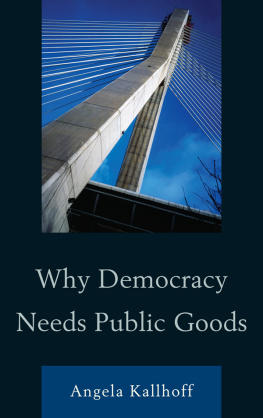
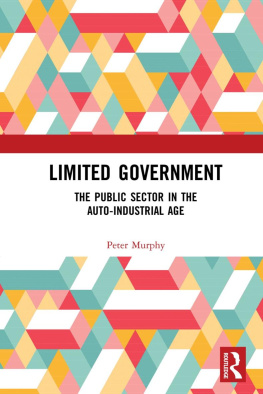
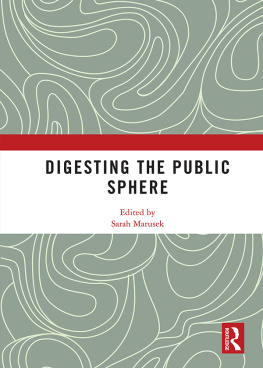
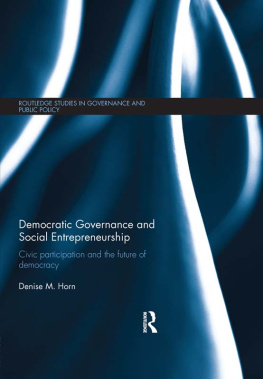
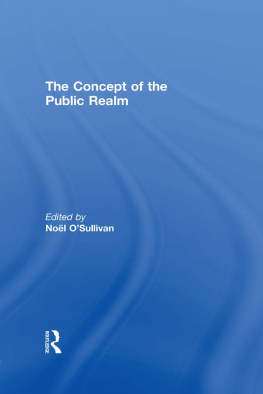

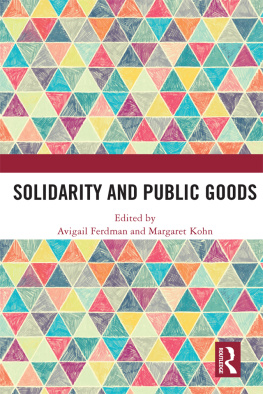
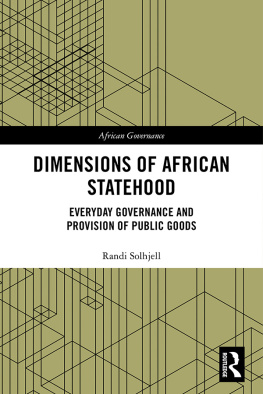
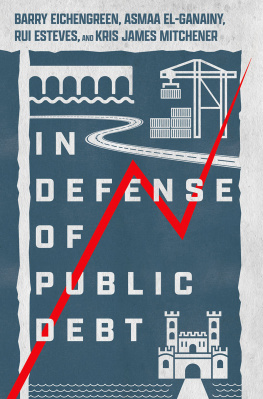

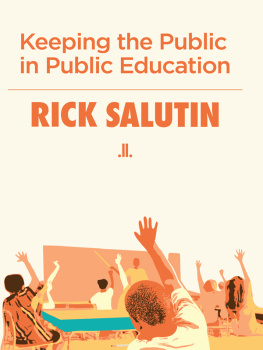


 The paper used in this publication meets the minimum requirements of American National Standard for Information SciencesPermanence of Paper for Printed Library Materials, ANSI/NISO Z39.48-1992.
The paper used in this publication meets the minimum requirements of American National Standard for Information SciencesPermanence of Paper for Printed Library Materials, ANSI/NISO Z39.48-1992.